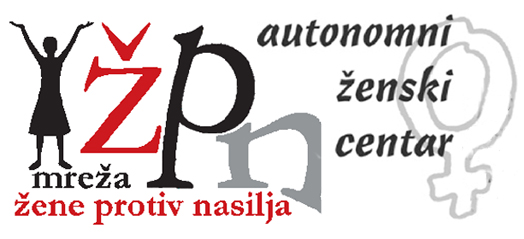Urgent measures are not followed by court processes / Hitne mere nisu praćene sudskim procesima

10th of April, 2019: At the monthly level, in Serbia, 1572 prohibition of contact and approaching the victim is exempted on average, 689 exits from the apartment, and 663 persons receive both urgent measures, of which 90% are men – Results are of the Independent Monitoring of the Law on Prevention of Domestic Violence for the period from July to December 2018, which was done by the Autonomous Women’s Center.
Monitoring also shows that short-term preventive care is still not accompanied by an adequate number of lawsuits filed ex officio for domestic violence protection measures, although their increase is recorded. At the same time, there is still a disparity in the number of emergency measures imposed in different parts of the country. The number of individual plans for the protection and support of the victim is far below the number of new cases of violence considered, and for the existing plans it is not possible to determine the content and the purpose. Victims continue to rarely attend meetings of the Coordination and Co-operation Groups.
The work of the co-ordination and cooperation group in the Rasina, Sumadija and Podunavlje districts was followed by the Women’s Association Peščanik from Krusevac. Their report, among other things, shows that cities that have better cooperation of coordination groups with local women’s organizations have a higher percentage of adopted proposals for extending urgent measures. For example, in Kragujevac, this ratio is 97%, while in Krusevac, in which cooperation does not exist, this ratio is 79%. This report also confirms that the number of individual protection plans is disproportionately small in relation to the number of cases of domestic violence – for example in Kruševac – 12.5%, and in Kragujevac – 20.7%. Victims of violence, as well as women’s groups, are not invited to meetings of coordination and cooperation groups, with quite rare exceptions, show monitoring results.
____________________________
На месечном нивоу у Србији просечно се изричу 1572 забране контакта и приближавања жртви, 689 мера удаљења из стана, а 663 особе добију обе хитне мере, од тог броја 90% случајева су мушкарци, подаци су Независног мониторинга Закона о спречавању насиља у породици за период од јула до децембра 2018. године који је урадио Аутономни женски центар.
Мониторинг такође показује да краткорочна превентивна заштита и даље није праћена одговарајућим бројем тужби поднетих по службеној дужности за мере заштите од насиља у породици, иако се бележи њихов пораст. Истовремено, и даље постоји неуједначеност у броју изречених хитних мера у различитим деловима државе. Број индивидуалних планова заштите и подршке жртви далеко је испод броја разматраних новопријављених случајева насиља, а за постојеће планове није могуће утврдити садржај и сврсисходност. Жртве и даље врло ретко присуствују састанцима група за координацију и сарадњу.
Рад група за координацију и сарадњу у Расинском, Шумадијском и Подунавском округу пратило је и Удружење жена Пешчаник из Крушевца. Њихов извештај, између осталог, показује да градови који имају бољу сарадњу група за координацију са локалним женским организацијама имају и већи проценат усвојених предлога за продужење хитних мера. На пример, у Крагујевцу је тај однос 97%, док је у Крушевцу, у ком сарадња не постоји, тај однос 79%. И овај извештај потврђује да је број индивидуалних планова заштите несразмерно мали у односу на број разматраних случајева насиља у породици – на пример у Крушевцу 12,5%, а у Крагујевцу 20,7%. Жртве насиља, као ни женске групе, нису позиване на састанке група за координацију и сарадњу, уз сасвим ретке изузетке, показују резултати мониторинга.
